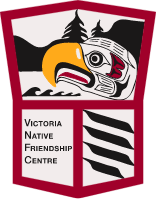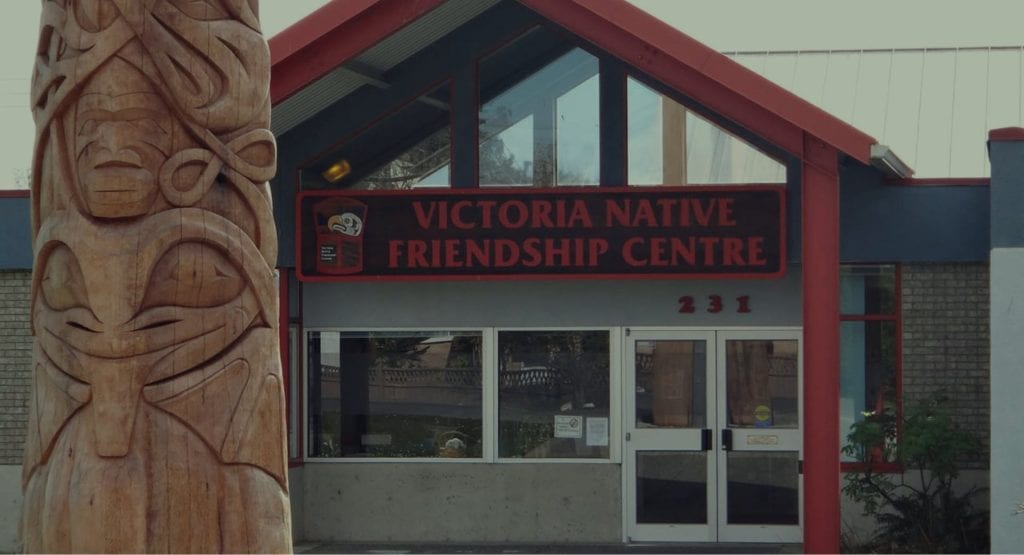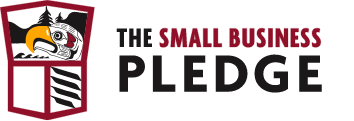The VNFC supports local artists.
Learn more about the rotating artist pieces on our website.

The VNFC quickly became a progressive hub for Indigenous peoples in Victoria. Unfortunately, financial concerns forced the Centre to close its doors. Thankfully, the Board of Directors remained active, and in September 1972, a new facility was opened on the corner of Fernwood and Gladstone St. With the help of the Victoria United Way, core funding from the Secretary of State, and continued support from the First Citizens Fund, the new Victoria Native Friendship Centre flourished.

Four moves and 40 years later, the VNFC now occupies more than 38,000 square feet of a former elementary school under a 99-year lease with the School District of British Columbia. The Centre has become a vital resource for urban Indigenous individuals and families and is strategically positioned to play a significant role in the development and implementation of urban Indigenous governance on southern Vancouver Island.

It was in the mid-1950’s that Indigenous groups in several large cities simultaneously began to push for a specialized agency to meet the needs of Indigenous people “migrating” to urban areas, for services that would assist in the transition process from rural to urban living.
Large cities were attracting young people through the educational, employment and social advantages they offered. Although they moved away from reserves with ideals and high hopes, often the reality of city life struck Indigenous people hard. There were no guidelines to help Indigenous people through the maze of ministries and institutions. There was discrimination to contend with as well as loneliness, isolation, and demoralization.


The first official Indian Friendship Centre was incorporated in Winnipeg in April 1959, and by the 1970’s, Friendship Centres were sprouting across British Columbia. The original funding came from private foundations and from the provincial and federal governments. Today there are 25 Friendship Centres across BC.
In British Columbia, the groundwork for establishing Friendship Centres without government core funding was laid in Vancouver, but the benefits of similar organizations have spread to communities throughout the Interior, North Vancouver Island and the Coast. There are now firm foundations for future generations to build upon for the betterment of urban Indigenous people.
Learn more about the rotating artist pieces on our website.



Copyright © Victoria Native Friendship Centre Charitable Registration 108172933RR0001
231 Regina Avenue
Victoria, BC V8Z 1J6
T: (250) 384-3211
F: (250) 384-1586
E: reception@vnfc.ca
Hours of Operation
Mon – Fri, 8:30am – 4:30pm
T: (250) 940-2669
Unit 209 – 2951 Tillicum Road
Victoria, BC V9A 2A6
Hours of Operation
Mon – Fri, 9:30am – 3:00pm
T: (250) 886-1360
231 Regina Avenue
Victoria, BC V8Z 1J6
No walk-ups accepted: call 250-886-1360 for assessment between 2pm-7pm.
Copyright © 2022 Victoria Native Friendship Centre – Charitable Registration 123456789
VNFC is unable to accommodate rental requests for meetings or events due to the existing programming schedule. Thank you for your understanding and cooperation.
